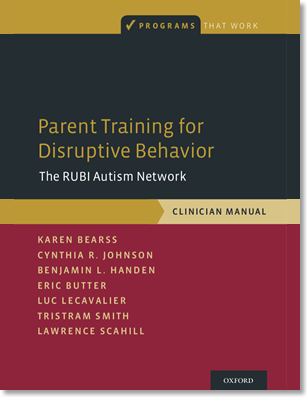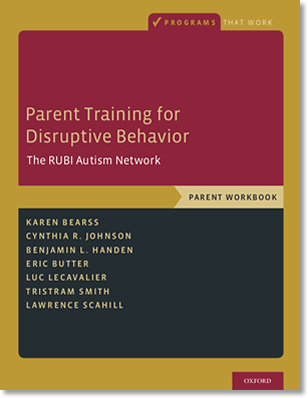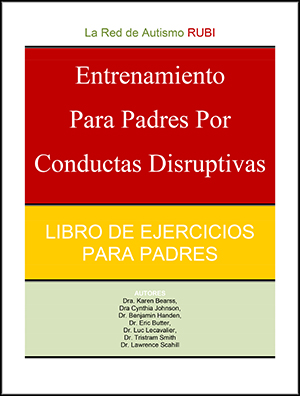The RUBI Autism Network
Parent Training for Disruptive Behaviors
For over a decade, The RUBI Autism Network has developed and tested a structured parent training (PT) manual for children with ASD and disruptive behaviors. Initial pilot studies showed that the PT manual was acceptable to families and could be reliably delivered by therapists (Bearss et al, 2013; Johnson et al., 2007; RUPP Network, 2007). Demonstration of feasibility set the stage for rigorous testing of the PT program in large scale RCTs. These studies showed that PT confers additional benefit when combined with medication (Aman et al., 2009; Scahill et al., 2012) and that PT is superior to parent education for reducing disruptive behavior in young children with ASD (Bearss et al., 2015). We are now ready and excited to disseminate the PT manual to community providers who treat children with ASD and disruptive behaviors.
The manual is based on principles of Applied Behavior Analysis (ABA) and is designed for therapists to use with parents of children with autism spectrum disorder and co-occurring challenging behaviors, such as tantrums, noncompliance, difficulties with transitions, and aggression. A trained therapist utilizes the manual to guide the parent in applying techniques and tools to help manage the child’s challenging behaviors.
The treatment includes 11 Core sessions, 7 Supplemental sessions, a home visit, and follow-up telephone booster sessions. Each of the sessions contains a therapist script, activity sheets, a parent handout, and treatment fidelity checklists. Additionally, accompanying each core session are video vignettes that the therapist uses to demonstrate concepts taught in the session. The videos include actors (a mother, father, three children) in 30-60 second vignettes demonstrating common parenting mistakes as well as implementation (to varying degrees of success) of the strategies being taught. The treatment manual is designed to be delivered individually to parents in weekly outpatient visits. Parents are given homework assignments between sessions that focus on applying techniques to specific behaviors.




